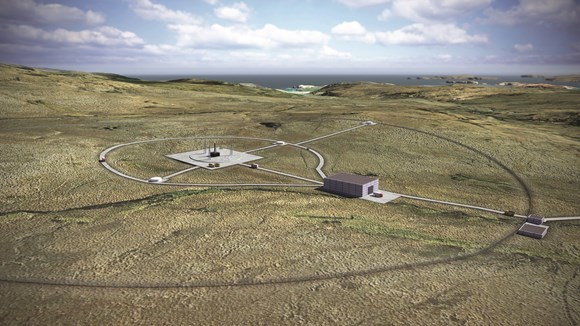Environmentalists have urged the developers behind the UK’s first planned spaceport to address concerns over the possible toxic fallout from rocket launches.
US aerospace giant Lockheed Martin could bring their electron rocket to the proposed site at the A’Mhoine peninsula, on the Melness Crofting Estate near Tongue.
Vertical rocket and satellite launches are planned and the UK Space Agency says the move could pave the way for spaceflights at the remote spot.
The electron rocket currently flies out of New Zealand from a peninsula in the country’s North Island, and environmental groups there previously highlighted concerns about the impact of chemicals, including kerosene, being released into the ocean by these rockets.
John Finnie MSP (Scottish Greens) said: “The news that the UK’s first spaceport is to be based in the Highlands is exciting and represents a potentially huge opportunity for the area, and one which I cautiously welcome.
“However, there are various environmental designations in the vicinity and serious efforts must be made to protect these before the project is allowed to proceed.
“I look forward to scrutinising the plans in the months and years ahead and hope that they are able to address these understandable concerns.”
A Lockheed Martin spokeswoman said they are yet to confirm their supplier (type of rocket) but plan to use a “lightweight and cost-effective” launch vehicle and stressed all of their vehicles “must comply with strict regulations.”
She added: “We are working closely with the UK Space Agency on the specific UK regulations and with Highlands and Islands Enterprise (HIE) to fully assess the environmental impact of activity in the Sutherland area.”
The spokeswoman also stressed that Lockheed Martin has more than 50 years of experience in space and has overseen more than 100 successful launches.
A UK Space Agency spokesman said that, under the Space Industry Act 2018, a licence will be required for operators to meet strict safety conditions, building on the strong track record the UK has of regulating industries like aviation.
He added: “Government has been very clear that spaceflight activities must not unduly impact the environment.
“All UK launch operations must submit an assessment of environmental effects of their proposed activity prior to being granted a licence and comply with existing environmental and planning legislation.”
Professor Alex Miller, deputy director of the Scottish Association for Marine Science, said they would be happy to work alongside the developers to assist with an environmental assessment at an early stage, given the proposed development’s proximity to the coast.
A HIE spokesman said that they “fully appreciate” the importance of the natural environment at the proposed site and that a detailed environmental impact assessment will be carried out.
HIE has approved a total funding package of £17.3 million for the spacesport scheme, including £2.5m from the UK Space Agency and £9.8m from HIE.
Economy Secretary Derek Mackay suggested the investment could support up to 400 jobs.
The decommissioning of the Dounreay nuclear power plant in Caithness could also mean there is a good pool of technical workers nearby for construction.
